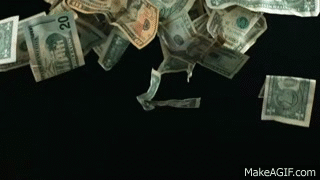The future is here and you are being left behind: Petro-dollar, Debt, Printing Money and Nationalization of Companies...

My electric fat tire bike is ready for my travels and the VW van should be ready early next week.
The world is way too complicated for anyone to really care so they don't pay attention.
Did you know that in 2008 when the banks seized overnight lending to each other for 30 days because they did not trust each others financial statements that the western world became bankrupt? And in order to prevent systemic failures of companies and countries the world has been printing money ever since - currently printing to the tune of at least $250 billion (USD equivalent) per month or $3 Trillion dollars per year! This is called inflating the value of your money away. Who cares?
Did you know that the Japanese government now owns 75% of the countries Exchange Traded Funds (ETF)? This is called nationalizing your companies:
Should you care and or do the money dudes or governments have your back?
This is a good clip for those wanting more from a common sense point of view:
Another excellent short video on the topic:
The following link is big news as I suspect China said if you do this we will double our purchases of oil from you:
http://www.zerohedge.com/news/2017-09-13/de-dollarization-spikes-venezuela-stops-accepting-dollars-oil-payments
"The W3C is already working with third-party payments apps to integrate both crypto-currency and non-credit card forms of payment into the API in a way that can be interpreted by merchants and consumers.
"So, for example, you might identify a particular bitcoin payment method with a URL, and then people can distribute payment apps that declare their support for that payment method," Jacobs said.
The Web Payment Working Group’s next face-to-face meeting on the browser-based API is scheduled for November 6 and 7, with a demo scheduled to take place on October 23 to show how Airbnb, Google and Mastercard are using the API."
The following video will let you understand how you are being left behind by not owning any crypto-currency:
For more on my travels, photography and living in a VW Van, within my means of pension revenue of $750.00 per month follow me here.

Nice photography!!its cool!!

upvoted and resteemed. Bitcoin is the future and the doomsayers cant deny it.
yeah..you are right..
Reestem, thanks for sharing it is very instructive.
@greenman
It is true that his publications are really very beautiful
yeah
Reestem and upvoted, cycling tours = superb pictures to come
very interesting information I hope the group that supports crypto money will win
Right
i have seen there is cycle of recession in every 20 or 25 years and thats truth but if you take the recession of 2008 into account and if you asses the present market scenario then the recovery may not be that organic and more of a synthetic recovery that means the fundamental has to do much more to called as a real recovery.
So whenever recession will be there the paper currency will be printed in trillions to save the economy and so many regulations will be attached to those fund.
So it is always better to adopt blockchain and crypto where you are thr true master of your own money.
Thank you and once again a very nice blog.
Living frugal is the key to saving, saving will create capital for when opportunity knocks. Love the bike!
Yah the electric bike really looks powerful
Excellent as usual. As one system dies another will blossom.
It was interesting to read! resteem, upvote
Thanks for giving the chance to enjoy this beautiful news!!
greenman your bicycle photography so wonderful.
.gif)
In the 2005–2014 petrodollar surge, financial decision-makers were able to benefit somewhat from the lessons and experiences of the previous cycle. Developing economies generally stayed better balanced than they did in the 1970s; the world economy was less oil-intensive; and global inflation and interest rates were much better contained. Oil exporters opted to make most of their investments directly into a diverse array of global markets, and the recycling process was less dependent on intermediary channels such as international banks and the IMF.
.gif)
.gif)